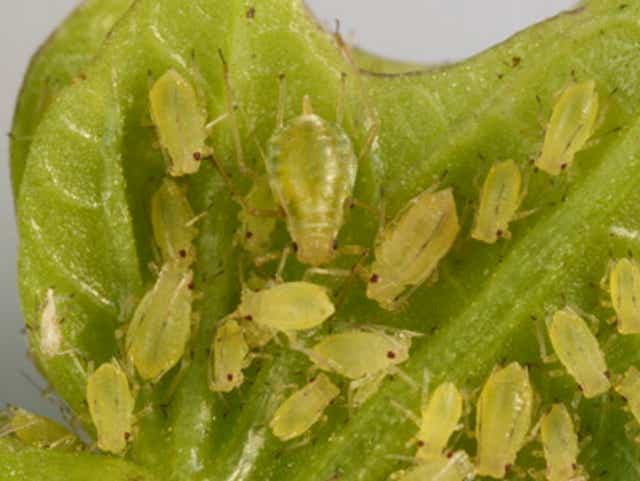The hot weather that Moose Jaw received recently created a sticky situation for homeowners, as high temperatures led to an explosion of aphids that produced the shoe-sucking substance of honeydew.
The aphids feed on the underside of the leaves and produce honeydew, and when the aphid population on trees is high, the substance drips onto surfaces below — vehicle windows or sidewalks, for example — and becomes an annoyance.
“Aphids are definitely more of a problem level than they are usually this year and that’s just because of hot, dry weather,” said Sarah Regent, horticulturist with the City of Moose Jaw. “Anytime we get a prolonged stretch of heat without a lot of rain, we are going to see a lot of aphids.”
The annoying bugs have been a problem on several occasions during the past five years, again due to the summer, she continued. A lack of rain would normally interrupt the aphids’ breeding cycle since it would wash them off the leaves; the bugs are not very good at staying attached.
The parks and recreation department has received regular complaints from residents about aphids during the past few weeks. To help homeowners combat any remaining bugs, Regent provided a few tips to deal with the critters.
Use dish soap and water since this is effective in removing the honeydew. Meanwhile, residents should give their trees a deep watering to help them recover if trees have speckled or wilting leaves due to aphid feeding. The soil should be damp at least 10 centimetres (four inches) below the soil surface to ensure the water is below the grass roots.
Residents can also wash off the affected plants — several times if necessary — with a strong stream of water, Regent continued. The water will knock off most aphids and should leave alone the larger ladybugs and lacewings.
Yellow sticky traps can also help reduce aphid populations in gardens and potted plants.
Water and soap are the most eco-friendly ways to rid trees of aphids since chemicals such as insecticides can be deadly to predatory bugs such as ladybugs, lacewings and parasitic wasps, which eat the aphids, said Regent. Meanwhile, it’s helpful to ensure there are spots in the yard where these predatory bugs can survive over the winter; leaving a pile of leaves is one way to create a temporary home.
Residents can also create ladybug drinking stations by filling a shallow dish with rocks and water. Such stations should be drained and filled once a week to prevent mosquitoes from breeding.
While ladybugs can help eliminate aphids, there is currently a lack of commercial ladybugs to purchase this year because of wildfires in California.
“It’s not ideal. It is frustrating,” chuckled Regent. “But … there’s nothing you can really do about those ladybugs in California. The best thing for us to do here is to encourage our own native ladybugs.”
Anyone with further concerns or questions about aphids can call parks and rec at 306-694-4447.




